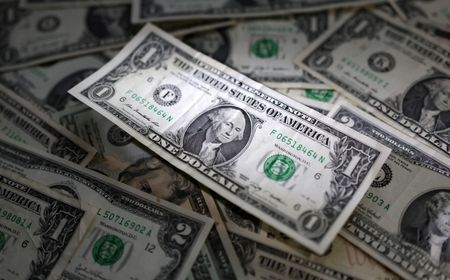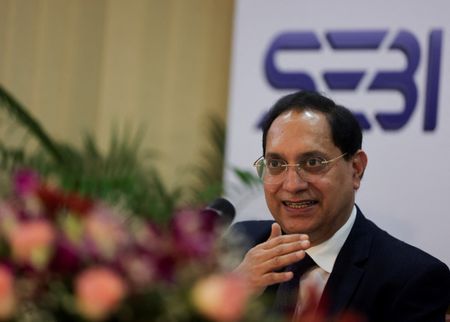By Chibuike Oguh and Stefano Rebaudo
NEW YORK (Reuters) -The U.S. dollar fell, on track for a third consecutive session of losses against major currencies including the euro, yen and Swiss franc on Thursday, amid U.S.-China tensions and as markets assess remarks from Federal Reserve officials.
China accused the U.S. of stoking panic over its rare earth controls, rejecting a White House call to roll back the curbs.
“The dominant story line is still U.S.-China trade tensions,” said Matt Weller, head of market research at StoneX. “It seems like China is ratcheting up the pressure ahead of the expected meeting between President Xi Jinping and President Donald Trump at the end of the month. The key question is if that is just an attempt to get some negotiating leverage or China is ready to more meaningfully decouple.”
The dollar weakened 0.49% to 0.793 against the Swiss franc.
Federal Reserve Governor Christopher Waller said he is on board with another interest rate cut at the U.S. central bank’s policy meeting later this month because of the mixed readings on the state of the job market.
The Fed’s newest governor, Stephen Miran, reiterated his support for a more aggressive rate cut path for 2025 than the one favored by some of his colleagues.
The Fed’s Beige Book offered little support to U.S. rates, pointing to emerging signs of economic weakness, including rising layoffs and reduced spending among middle and lower-income households.
The dollar index, which measures the greenback against six other currencies, fell 0.33% to 98.35.
U.S. Treasury yields hovered near multi-week lows, with the benchmark 10-year just above 4%, pressuring the dollar as investors also weighed a prolonged U.S. government shutdown.
“We are kind of in a holding pattern here especially with the U.S. government shutdown, which is predicted to last almost 40 days. The impacts to the economy tend to be exponential the longer shutdown lasts. That going on with the U.S.-China trade tensions, I think, has left traders in an awkward spot as they decide how those will play out,” Weller said.
FRENCH POLITICAL DRAMA
French Prime Minister Sebastien Lecornu survived two no-confidence votes in parliament, winning a temporary reprieve for his days-old government and the chance to deliver a budget for the euro zone’s second-largest economy. Lecornu had earlier this week pledged to suspend President Emmanuel Macron’s controversial pension reform.
The euro touched a one-week high and was up 0.36% at $1.1688.
The Bank of Japan must be careful when normalizing monetary policy due to uncertainty about how the economy would react to a new environment of positive interest rates, Seiichi Shimizu, the central bank’s assistant governor, said on Thursday.
The dollar extended losses against the yen following Shimizu’s comment and was last down 0.46% at 151.35.
The Australian dollar was down 0.48% at $0.6479 after data showed unemployment hit a near four-year high in September, adding to the case for interest rate cuts. [AUD/]
The Aussie, often considered a proxy for risk appetite, remains hostage to China-related news and its good fundamentals could crumble in a major trade war.
Goldman Sachs analysts expect the Reserve Bank of Australia to deliver a final 25 basis-point cut at its November meeting in the wake of comments by Governor Michele Bullock, which signal the central bank sees an end to its rate-cutting cycle in the near term.
“Today’s employment data also pushes in that direction, though AUD/USD has retraced the initial move lower, and U.S.-China trade tensions will likely remain the key driver for the pair in the coming days,” the Goldman analysts led by Stuart Jenkins said in an investor note.
China’s yuan firmed to a two-week high against the dollar after the central bank set its strongest daily midpoint in a year. The Chinese yuan was last up 0.09% against the greenback to 7.124 per dollar. New Zealand’s kiwi was down 0.02% against the dollar to $0.5722.
(Reporting by Chibuike Oguh in New York and Stefano Rebaudo; Editing by Hugh Lawson and Lisa Shumaker)











